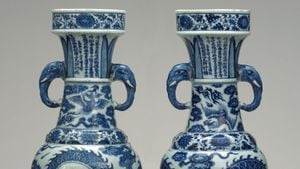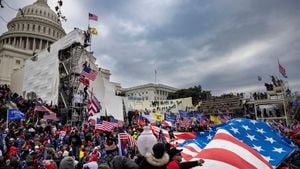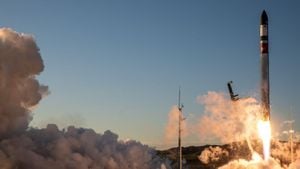Nippon Steel Corp. is gearing up for significant discussions with local labor unions at U.S. Steel's major manufacturing bases, aiming for clarity and cooperation as it pursues its ambitious $14.1 billion bid to acquire the American steel giant. Takahiro Mori, vice president of Nippon Steel, is scheduled to visit Pittsburgh next week, where he'll meet with members of the United Steelworkers (USW) representing the company's prominent plants located around the city.
This visit marks not only a push for goodwill but also reflects the company's strategy to gather support among the union ranks, which is pivotal as the acquisition deal faces scrutiny, particularly following politically charged rhetoric surrounding foreign investments. Mori's outreach is seen as a bid to show union leaders and workers alike the potential benefits this acquisition could bring to job security and local employment trends.
USW Local 2227 vice president Jason Zugai has confirmed he received direct communication from Mori, expressing willingness for dialogue. Zugai aims to convene with Mori along with other union representatives from key facilities including the Edgar Thomson, Clairton, and Irvin Plants. “We want to extend our labor contracts, maintain our pay raises, and really assess how this deal can work to our benefit,” Zugai remarked, emphasizing their immediate demands.
Potential challenges loom as the United Steelworkers' international president, David McCall, has publicly opposed the acquisition, insisting on contractual guarantees from Nippon Steel to secure capital investments. McCall has also voiced concerns over national security and supply chain integrity, noting these factors must be resolved for union members to support the impending decision. “We need commitments on investments, not just promises,” he stated, underlining his firm stance against the deal without stipulations ensuring the longevity and resilience of the steel industry.
The backdrop of these negotiations is punctuated by political tensions surrounding the deal, particularly within the electoral battleground of Pennsylvania. The acquisition's potential has become fodder for political debate, especially from figures fearing the ramifications of foreign ownership on domestic manufacturing. During President-elect Donald Trump’s campaign, he warned against approving the deal, vowing to protect American jobs.
All eyes are now on CFIUS (Committee on Foreign Investment in the U.S.), which is tasked with the review of Nippon Steel's proposal. This committee's approval or rejection is anticipated to have significant consequences, not only for the companies involved but also for the labor force swayed or worried by the political discourse. The decision timeline has extended, and whether it will escalate to Trump’s office remains uncertain as the committee explores the intricacies of foreign investments.
Interestingly, Mori’s upcoming Pittsburgh trip isn’t just about serious negotiations; he’s also making time to attend the Steelers game against the Baltimore Ravens. This blend of business with community engagement symbolizes Nippon Steel's attempts to connect with steelworkers beyond boardroom discussions. While steel unions face stirred sentiments about their futures, some rank-and-file members express openness to the merger, contrasting McCall's resistance. A faction of the union boldly voiced support for Nippon Steel’s acquisition on national TV, spurring additional dialogue about the divide within the workforce.
The labor climate is shifting, as Zugai, alongside fellow steelworkers, expressed solidarity with Trump during his campaign, aiming to align their interests with political power. Such public displays of support make it evident many local steelworkers feel the pulse of the acquisition narrative is not solely about economics but is laden with political undertones. This dynamic atmosphere has bolstered Zugai's determination, claiming, "I’m doing whatever I have to do to get this deal done,” underscoring the gravity of the moment for both the company and its workers.
Nippon Steel's move to engage workers directly and thoughtfully could be seen as strategic, highlighting their commitment to not merely be perceived as another foreign entity. By focusing on labor relations, they are signaling their awareness of the local workforce's concerns—understanding how integral their sentiments are to the acquisition's success.
Despite the optimism exuded by some union members, the overarching sentiment remains one of caution. Each conversation around the deal may inch the company closer to adapting its bid or potentially recalibring after getting feedback directly from those on the factory floor. Zugai's hopes for discussions with McCall hinge on how the local unions can best represent their members’ interests moving forward.
On the horizon, the discussions surrounding the proposed acquisition certainly won’t fade away quietly. Workers rallying traditional and contemporary interests make the outcome of this integration more than just boardroom chatter. It also feeds directly back to the communities where steel is both heritage and livelihood. This multifaceted interaction—of corporate might meeting labor realities—sets the stage not only for the steelworkers of Pittsburgh but serves as a microcosm for how foreign investment reshapes American industry.
While news from CFIUS is expected by December, the urgency behind these worker conversations and the potential for increased labor activism could redefine the expectations both labor and management hold for this growing narrative. So, as Nippon Steel's Mori gears up for pivotal talks, the outcome remains uncertain but ripe with possibility, compelling both worlds closer than ever.



